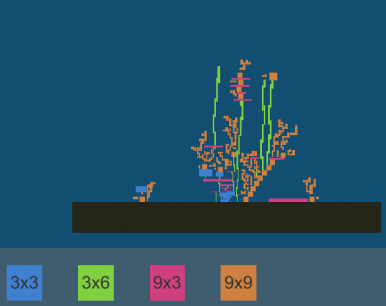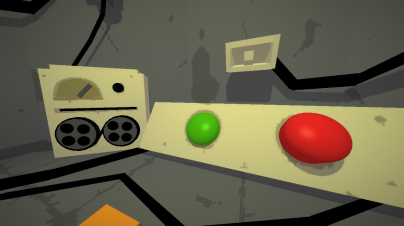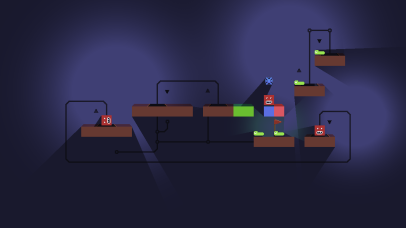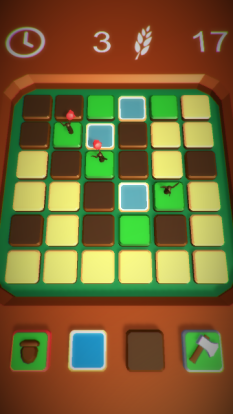So last week I said I was going to play more Ludum Dare 34 jam games… But I’m suuuper burnt out on those liddle diddies, so I’ll come back to them at some distant point in the far post-The Witness future. Instead, this week marks the first meeting of this little discussion group I’m trying to start. The idea is to come together in classic book club format to chat about ‘games that matter.’ Check out the subreddit here if you’re interested in having some meaningful conversation about some meaningful games! For our first discussion, we talked about Emily is Away – a short narrative-based game by @KyleSeeley23.

But rather than talking solely about the game as I normally do, I wanted to turn my focus to an article by Casey Muratori I recently happened upon. In his article, aptly titled Volitional Fiction, he focuses on two terms that are necessary to “…make a game feel like you’re actually playing it, not watching it.” Intention, to Muratori, is exactly what you’re familiar with. In the frame of video games, it is the ability for the player to make a plan or construct a goal, and then take actions in concordance with the known rules of the game universe to attempt to see it through. Perceived consequence, is the reaction the game has to the player’s action. In a very basic sense, I intend to do something in a game knowing the rules it’s presented to me so far (the goomba killed me last time, this time I’ll jump on it) then, after I take action, the game reacts and creates a feeling of push-and-pull (the goomba gets squished.) This push-pull is essentially what Muratori means by ‘play.’ The game throws some shit at me and I react to that shit. Then, if it’s a good game by his standards, I get some feedback, which then informs my future intentions. He says, “The cycle leads to a satisfying feeling of real interaction where the player chooses both what to do and how to do it, and the reaction of the game to their actions doesn’t feel arbitrary.”
This should all seem pretty straight-forward and agreeable. A game feels good and legitimate if the game’s reactions to my input make sense in the simulated world that has presented to me. Quite easily, you can see why this understanding of what makes a ‘good game’ will lead to the conclusion that there is something ‘wrong with current interactive fiction games.’ Going by the standards of intention and perceived consequence, there’s something wrong with games like Dear Esther, The Beginner’s Guide, or Everybody’s Gone to the Rapture by default. In this type of game, there’s no ‘intention’ and no ‘consequence.’ You just walk around and experience things. How can a Good Game™ possibly ignore these fundamental design paradigms??
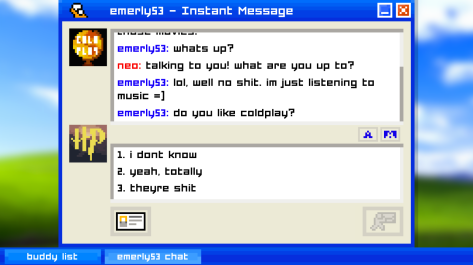
So let me wrap this back around to Emily is Away. You take on the role of a teenager at the end of his last year of high school. The entire game is constructed in a simulated AIM window in which you have instant message conversations with your long-time friend Emily. One of the first choices you make is to either go to a party or stay at home. So putting it in our earlier terms, let’s say my intention is to get Emily to fall in love with me. (The game rings loudly with the tone of dating sims, so this is not an unrealistic goal.) So I think, “well if I don’t go to the party, maybe she’ll wish I was there and we’ll have more of a chance later on.” So I choose not go to the party and she winds up dating this other guy and life goes on until later Emily tells me that if I had gone to the party, she would have taken off with me on a romantic escapade. So my action resulted in a consequence that I did not expect, which is fine. That happens. The game world is teaching me its consequences. I simply restart the game and choose to go to the party with her, that way I’ll get my intended result! But that’s not what happens. She just winds up with a different guy. This throws dirt in the face of the ‘perceived consequences’ the game had previously established. Mr. Muratori would hate Emily is Away.
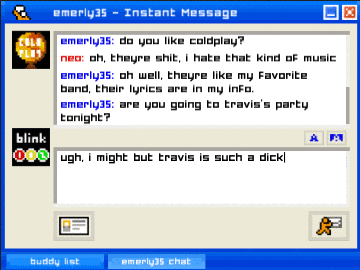
And it’s not just because the game’s internal logic appears inconsistent that this game would rub him so wrongly. It’s because there’s something inherently non-volitional about narrative-driven games as we currently know them. He says, “These choices are merely single, scripted instances in time, presented to the player without their initiation — the player never makes a plan or decides what to do. They have a situation thrust upon them and are asked to decide which to do.” You can either go to the party or not. You can either invite Emily over to your dorm or not. You can decide between fork A and fork B, but the result is rarely what you intended. Indeed, I am unable to disagree with Muratori here. Fiction by default is NOT push-and-pull in the gamey sense that he’s so invested in. And interactive fiction merely gives the illusion of that push-and-pull. It presents a range of options from which the player can choose (but never bypass) and then sends them down a scripted, static road based on that choice. There is no emergence, no dynamism, no give-and-take. A narrative-based game like Emily is Away can’t be a good game without those integral elements of complex interaction.
What a load of bullll shit.
Again, imagine my intention is to get Emily to fall in love with me. I therefore interact with the few choices I have based on the world the game has presented me. But I still find that nothing seems to work in respect to achieving my desired outcome. I could go on a tirade and start complaining about true choice and volition in interactive fiction. I could criticize these narrative-driven games because they don’t allow the player to truly assume the role of the main character and don’t actually allow me to make real decisions about what and how I want to do things. But why? Why does the player deserve that much power? Since when has that been how stories (or even most video games) work? Are we supposed to feel so in control when we play through a work of narrative? Is the goal of fiction to give us the impression that it is truly us in the role of the main character? Or is it to communicate something important, to give us a slice out of someone else’s biography, to remind us that it is not just us here with these memories and emotions and experiences? Interactive fiction gives us the ability to assume the role of another, from the intimate first person. That does not mean all narrative fiction ought to be about ME and MY volition. I don’t want the future of interactive narrative to be more like Façade.

Emily is Away succeeds as a narrative-driven game because it allows us to explore a relationship in a way that a classical piece of fiction AND a classical volition-heavy game would not be able. It doesn’t use groundbreaking technology to give us the ability to interact at any moment or in any way in order to achieve our intended outcome. It gives us a severely limited range of choices followed by a highly constrained set of responses. But how is that so different from real life? When you were talking to your crush on AIM way back when, did you really have the option to say anything you wanted? Were you really able to bypass the boundaries of social conventions, ignore all historical and personal context, and just tell that person you loved them? And if you were able to do all that, were you ever really able to choose otherwise? All this determinism junk aside, Emily is Away presents a look at how a real relationship works. You don’t actually plan out your every action based on what your goal is. Most of the time the ‘perceived consequence’ is vastly different from the actual consequence. The world is messy and relationships are messy and Emily is Away doesn’t need to give the player more volition just to appease control freaks. The game is short, sweet, and a solid slice of life.
follow n8 @UncleEggma






